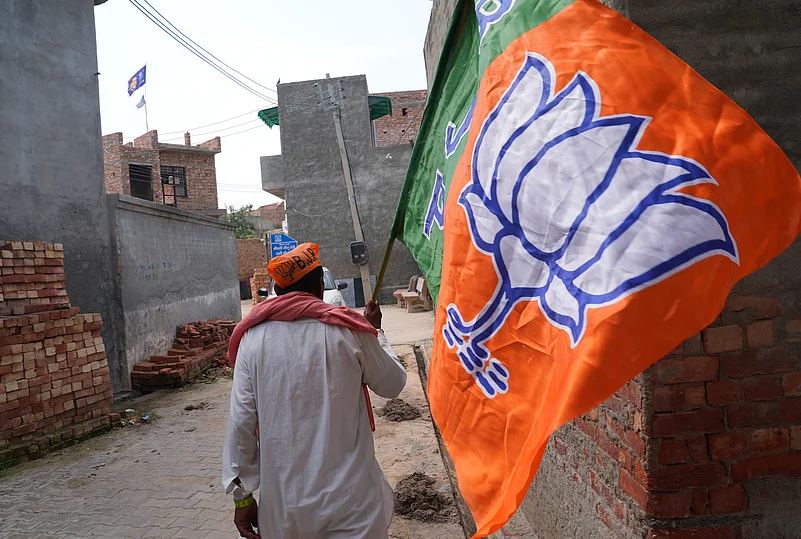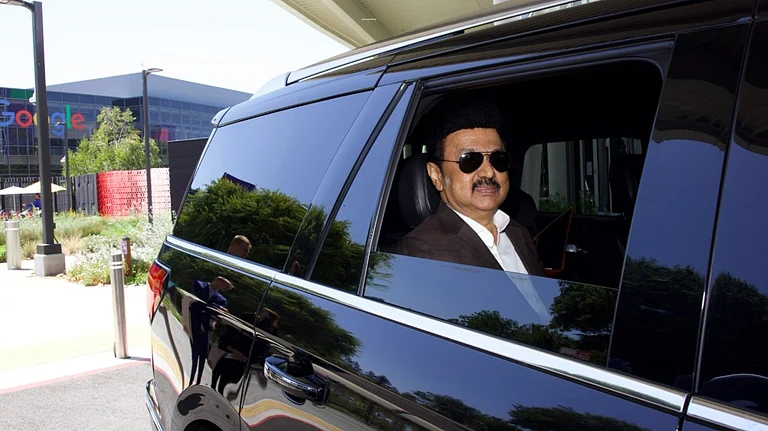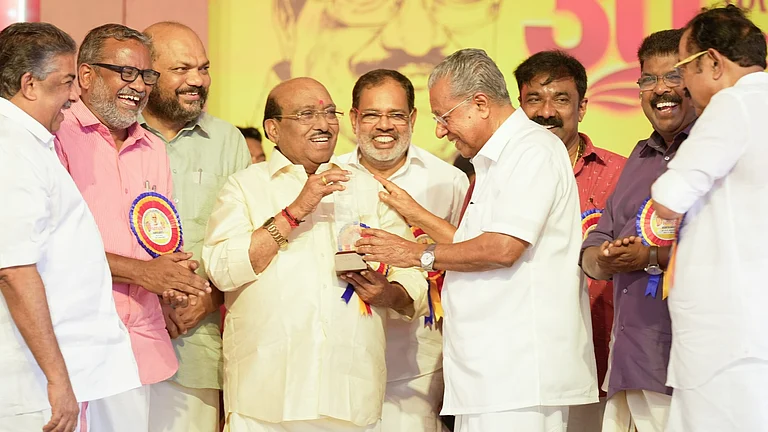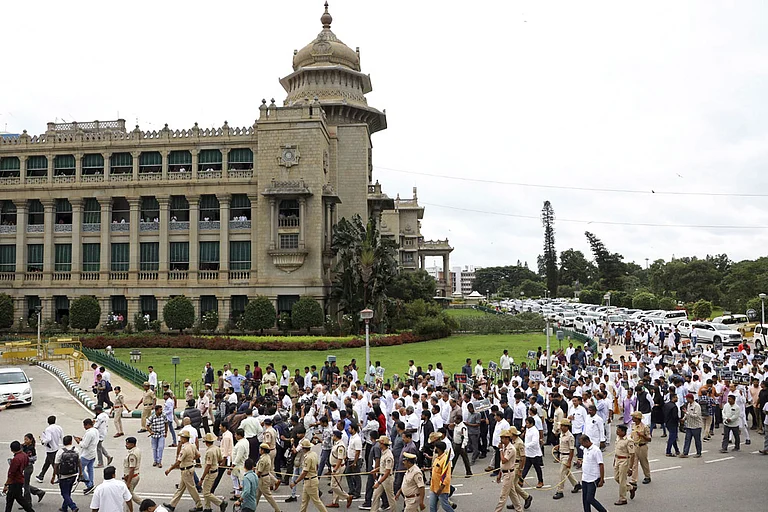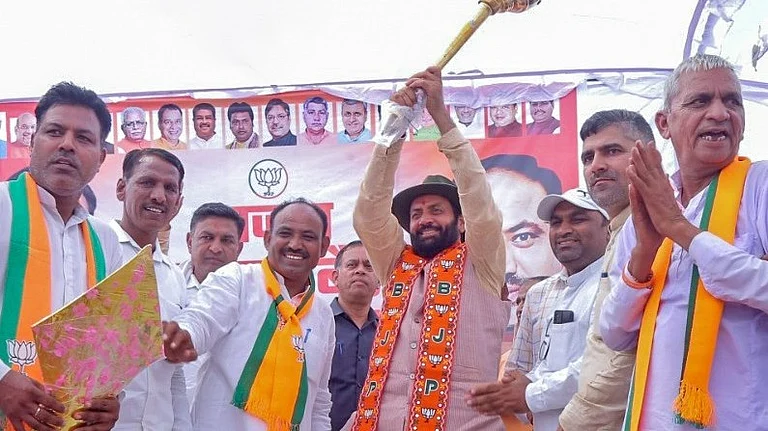The BJP seems to be moving away from many prevailing assumptions about the party. The BJP is constantly remoulding and reinventing itself, especially in the politics of different states.
A major change can be seen in the selection of Chief Ministers of states where the party has won elections. Haryana itself set an example when Manohar Lal Khattar, a first time MLA, was chosen to lead the state in 2014. Same was the case in Rajasthan where Bhajan Lal Sharma, a first time MLA, was preferred over many seasoned leaders to become the Chief Minister in 2023. In other states like Madhya Pradesh, Odisha, and Maharashtra, the same pattern could be observed.
One can understand this new phenomenon as the creation of leadership from new social segments that have been co-opted by the party to increase its social base or consolidation of certain social segments behind these newly empowered leaders.
In Haryana, the elevation of Nayab Singh Saini as the Chief Minister could be understood in terms of rallying the backward caste behind the BJP and the BJP succeeded in this endeavour as could be inferred from the results of the Assembly elections of 2024. The BJP in its efforts to enlarge its support base has not only co-opted new caste and communities in its fold which traditionally were not part of its social support base, but has also expanded geographically into new regions that were beyond its reach prior to 2014.
The new Cabinet must reflect these new realities. All the castes and communities which helped in this expansion must have ample representation to give them a sense that they are equal partners in the sharing of political power.
The division of the Scheduled Caste into two sub categories has helped the BJP into making inroads in the underprivileged sections of Haryana society. The new category of Deprived Scheduled Caste solidly backed the BJP in Haryana as they felt that the benefits of reservation were cornered by 'Chamars' to the detriment of other Scheduled Caste. This section of the deprived scheduled caste felt that they are being given their due for the first time. The Congress is dominated by the Chamars so the rest of the deprived sections moved towards the BJP and in the process giving the BJP a substantial number of the reserved seats in the just concluded Assembly elections. The BJP must provide representation in the Ministry to the Deprived Scheduled Caste so that they remain steadfast in their support in the times to come also.
The other group that needs to be represented is the powerful Yadav community which has once again shown its loyalty towards the BJP. The BJP bagged ten out of eleven seats in the Ahirwal region dominated by the Yadavs. Rao Inder Jeet has once again made his claim for the post of Chief Minister which the party has already committed to the incumbent Chief Minister. Now, it is to be seen as how Rao Inder Jeet will be pacified by the top leadership of the party. The appointment of Home Minister Amit Shah as the observer for the meeting of the selection of the Chief Minister is seen as efforts to quell any dissident voices that may arise. Arti Rao could be promised an important Ministerial berth as a balancing act to keep the tempers of her father to manageable limits.
The BJP needs to cater to its traditional support base i.e. of the Punjabis, Brahmins, Banias and Rajputs who have consistently stood behind the party in the thick and thin of times. The importance of this segment for the party could be gauged from the fact that the party gave maximum number of seats in the elections to this grouping. The BJP won most of the urban seats overwhelmingly because of the consolidation of these groups around the party.
The BJP may have won the elections on the basis of the social divide based on caste i.e. Jats and non-jats but the party realises that it must give fair representation to the Jats also as the stability of society depends on representation of all sections in the governance of the state. Most of the established Jat leaders of the BJP could not win so , now through representation in the Cabinet of new members from this community could help the party in getting the support of a community that has dominated the politics of the state since its formation in 1966. For the stability of societal relations, a strong message must go from the ruling party that they would not be partisan as far as constitution of the new Ministry goes. Discontentment in such a dominant caste would not augur well for Haryana society so the right message must go to the people that all sections of society would have a role in the governance of the state.
Not only different caste and communities be represented in the formation of the new Cabinet in Haryana but a proper balance must also be established by giving representation to all the major regions of the State. Apart from Ahirwal belt and South Haryana, other regions of the State like GT Belt, Bangar Belt, Bagad Belt, Deswal Belt and Mewat needs to be given adequate representation in the Ministries to be allocated in the new Cabinet.
Since the limitation imposed by the Supreme Court on the size of the Cabinet i.e. 15 per cent of the total strength of the Assembly has made the balancing act between different castes, communities and regions very difficult for any party that comes to power. Previously, when no such limitations existed disgruntled elected members would be accommodated by forming jumbo size cabinets. The BJP because of its strong leadership has been able to curtail and curb any kind of dissidence that has arisen due to non inclusion in the Ministry formation. But, it can not ignore the politics of 'Aaya Ram, Gaya Ram' for which the state has been known i.e. shifting loyalties for the sake of power. The BJP is no more the party that is cemented by ideology but its expansion could be attributed to co-option of leaders from other parties and who did not adhere to the ideology of the BJP previously. Such leaders may go for a summersault in case their interest are not catered to, since these leaders moved to the BJP for the sake of power so denial of power may make them depart if not now but may be by next elections.
Prof. Rajendra Sharma, Head, Department of Political Science, M.D.University, Rohtak.






